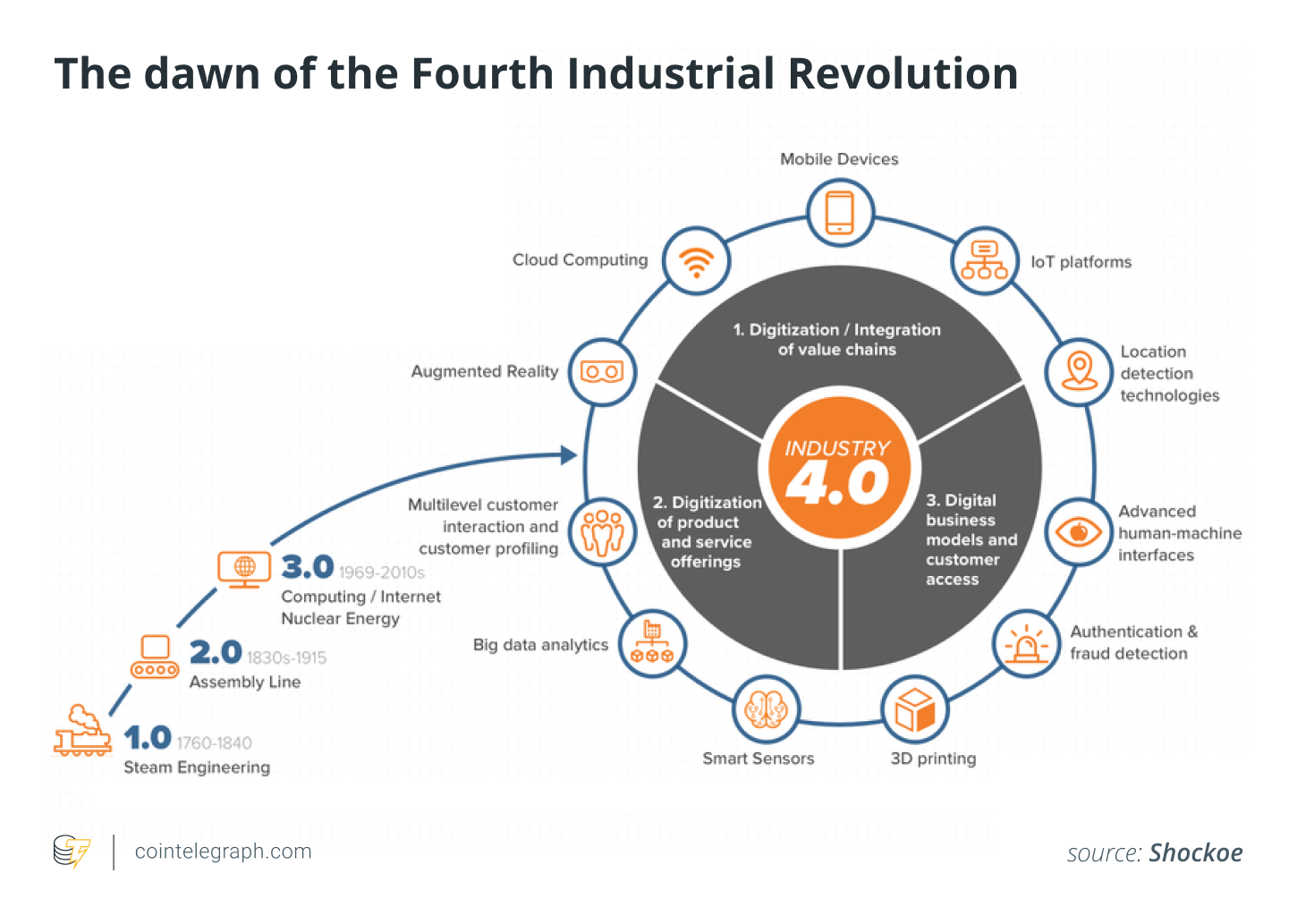People who have studied history may remember the city-states of medieval Europe. At that time, merchant caravans traveled from city-state to city-state carrying luxuries and news from afar. It is this way of life that gives these businessmen freedom of movement and choice. This is very similar to the concept described by Michael Ondaatje in his book The English Patient. The author envisions total freedom, with no frontiers or nationality to limit people's efforts towards development and progress.
Today, we have wider access to financial markets through decentralized finance, marking the beginning of an open world. From the perspective of wealth accumulation and cheap financing, DeFi has been very positive, giving new meaning to "everyone finance". By using blockchain technology to remove intermediaries, DeFi expands the scope of financial transactions while significantly reducing transaction costs. Predictably, DeFi is the future of finance and other industries. The only question that remains is: how quickly can we get to such a future?
DeFi Annual Summary
It's very interesting that in just 10 years we've gone from the concept of Bitcoin (BTC) as a digital currency (and personal banking in the traditional sense) to Wrapped BTC, farms and all the other crypto The Age of Alchemy.

In essence, according to the depth of its integration and the scope of use, it can be divided into the following types of DeFi applications. Decentralized exchanges (DEX) are one of them, providing free trading of cryptocurrencies. Stablecoins are pegged to external assets such as fiat currencies and precious metals. Lending platforms and prediction markets are also prevalent in the DeFi space.
As we all know, DeFi supports yield farming and liquidity mining, providing a niche way to utilize encrypted currency assets when encrypted currency assets have become mainstream.
blockchain city
Cities around the world are already embracing the new blockchain model and welcoming crypto-savvy citizens. For example, Seoul formulated a strategy in 2019 to become a global leader in blockchain technology. Park Won-soon, Mayor of Seoul at the time, proposed the "Seoul Blockchain City Promotion Plan," which became the foundation of the Fourth Industrial Revolution. Even before the presentation, some management services were already using blockchain technology in 2018. The new plan will expand the scope of technology, including direct democratic management, online verification, and mileage management through the issuance of S-Coin (Seoul Citizen Card).

Another example is the proposed crypto city in Nevada, USA. It's an experiment run by crypto billionaire Jeffrey Berns. He purchased land in Nevada and decided to lay the groundwork for a completely blockchain-based city. This initiative has been opposed by the local government, which has become one of the main obstacles on the way to creating a new town. Decentralization scares politicians because they risk losing control. However, recent congressional hearings on Web3 have raised hopes of a consensus on the issue.

It is worth noting that Dubai launched the “Dubai Blockchain Strategy” plan last year, becoming an important part of the United Arab Emirates’ 2021 blockchain strategy, which aims to transfer at least 50% of government transactions to the blockchain. The government sees an economic opportunity for positive transformation in its approach to innovation. Dubai is currently attracting blockchain evangelists and digital nomads from around the world.
smart government
It is clear that the failure of governments to realize the potential of DeFi and blockchain could lead to economic lag in the respective countries. The launch of a central bank digital currency (CBDC) has been a major sign of government implementation of blockchain technology.
The Atlantic Council has developed a tool to track the development stages of various CBDC projects across all countries. Ukraine, China, Sweden, South Africa, Malaysia, Singapore, Thailand, South Korea, Saudi Arabia, the United Arab Emirates, and several other countries have launched pilot versions of their respective CBDCs. Meanwhile, Nigeria, the Bahamas, and Eastern Caribbean countries have launched their CBDC development efforts.

Some see the government not only as a governing body but also as a proxy service provider. Global economic freedom, fueled by DeFi, will allow the choice of the government that provides the best service in terms of quality, speed, and efficiency. This especially needs to consider the taxation of crypto assets.
responsibility is freedom
In the world of encryption, owning the keys means you own your money. You are your own bank. So, being responsible with your money does provide the freedom to spend your money however you want, capitalize it if you choose, and interact on whatever platform or blockchain you want. To quote Michael Ondaatje:
"We are the real national boundaries, not the ones drawn by the strong."
Nationality does not imply a place, but belonging to a particular group. One day, the entire group may migrate to its own metaverse. As competition for qualified professionals is likely to intensify under a visa-free regime, entire cities and countries may come up with unique strategies to attract digital nomads. But when they have such freedom, will they choose to settle down?
Cointelegraph Chinese is a blockchain news information platform, and the information provided only represents the author's personal opinion, has nothing to do with the position of the Cointelegraph Chinese platform, and does not constitute any investment and financial advice. Readers are requested to establish correct currency concepts and investment concepts, and earnestly raise risk awareness.
 JinseFinance
JinseFinance






